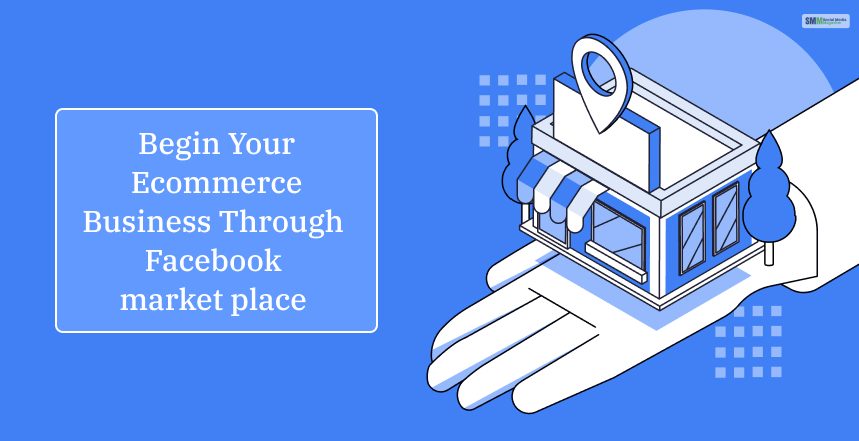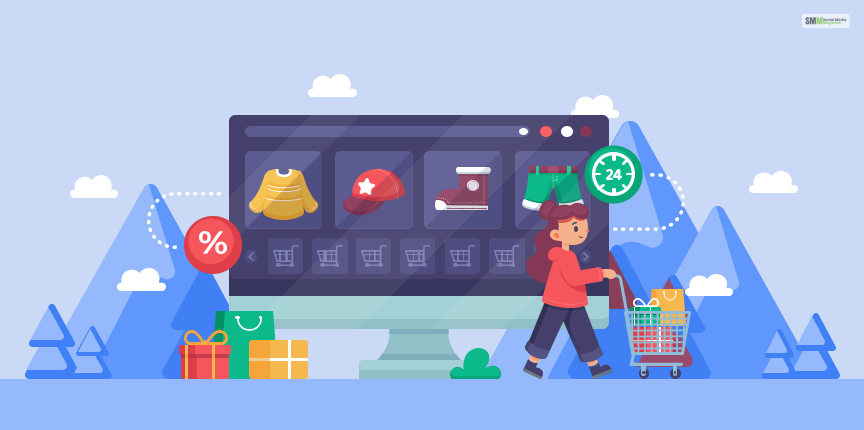Resources for E-Commerce Business Success
Nabamita Sinha, 2 days ago

Facebook Market place – a colorful online stage where businesses prosper and consumers acquire what they seek! If you are contemplating how to start your own e-commerce business, then look no further than this extensive guide.
We have lots of active users and a Facebook Market place. Therefore, connecting to the extensive Facebook network and selling on Facebook Market place can transform your business.
In this blog post, we will walk you through the steps for setting up your e-commerce business on Facebook Market place its benefits, and give you tips on how to succeed. Plus, we will also talk about Facebook Ads Manager to help boost your sales, discuss customer management strategies, and address problems that may come up.
Let’s do the deep dive right now and unveil the full potential of this strong tool!

Facebook Marketplace is an online platform that is increasingly becoming a position of choice for both individuals and businesses to sell their goods and services. With its massive user base and simple UI, using this platform for your e-commerce business is highly beneficial.
The huge reach that selling on Facebook Marketplace provides is one of its greatest conveniences. Over 2 billion active users globally present you with an audience ready to browse and purchase any item. This wide coverage increases the probability of making sales and growing your customer base.
Also, creating an e-commerce business on Facebook Marketplace is fast and easy. No listing fees or complex setup processes here. It is very easy to write product listings within minutes, including detailed descriptions, prices, and images of high quality.
Facebook Marketplace also provides direct communication between buyers and sellers through Messenger. It does away with the need for other platforms, such as third-party ones or additional messaging apps. Thereby simplifying the purchasing process for both parties.
In addition to that, while other e-commerce platforms charge transaction fees or commissions for each sale made, the Facebook marketplace does not have such charges.
Therefore, by selling on Facebook Marketplace, you can take advantage of its social features, like posting the listings to friends or joining the local buy-and-sell groups related to your niche market. These features enhance the visibility of your products amongst prospective buyers who might have similar interests.

The process of establishing an e-commerce business on Facebook Marketplace is a rather simple one that gives you new chances to sell your goods or services. Here are the key steps to give you a start:
Note that consistency in listing updates, superb customer service, and active buyer engagement are non-negotiable requirements for making it in the Facebook Marketplace.

Note that success in the Facebook market place takes time. Therefore, consistency remains paramount. Applying these points as a part of your e-commerce strategy will make it more probable that you will thrive within this dynamic online market environment.

Regarding the promotion of an online store on the Facebook marketplace, using Facebook ads can be a great strategy. Serving over 3.05 billion active users, the platform provides ample chances to connect and engage with your target people. (Source)
The flexibility of Facebook ads in terms of customization is one of their major benefits. You can build very granular campaigns based on demographics, interests, behaviors, and so on. This enables you to target those who are most likely to be interested in your products or services.
On top of that, you can control the ad budget and set both daily and lifetime limits to make sure you stay within the budget that you desire.
The cost per click (CPC) or cost per impression (CPM) depends on factors such as audience size and competition, but with proper planning and optimization, it’s possible to achieve a good return on investment.
To get the maximum return on your investment in Facebook ads, you need to know about the different types of ads. You can select from picture ads, video ads, carousel ads (showing different products), collection ads (perfect for product catalog display), and the list goes on.
By experimenting with different positions and designs, you can find what works most to drive the conversions.
Another powerful function of Facebook advertising is retargeting. This approach implies customized ads for visitors who have already been in contact with your brand, and this can be done via visiting your website and adding items to their cart without buying.
Recall that effective ad campaigns demand continuous monitoring and tweaking. Facebook gives detailed analytics; you can track important metrics such as CTR, conversion rates, and cost per acquisition (CPA). Analyzing this data, you must select that ad.

No matter what people are thinking, every marketplace has problems. Even Facebook marketplace!
In conclusion, Facebook Marketplace provides massive business opportunities. So, you should start utilizing it!
Facebook Marketplace has a large user base and many convenient features, which makes it a valuable channel for selling products and finding potential customers.
You can run your e-commerce business on Facebook Marketplace using the steps outlined in this article. Recall optimizes your listings, offers superior customer service, and employs efficient marketing methods. These include Facebook ads, to draw traffic to your shop.
Although there may be bumps in the road, like competition and dealing with customer inquiries. You can manage all this through perseverance and commitment. Using the answers within the article and the will to deal with problems that pop up, you can sail through any situation.
Hopefully, this article worked as an assistance and a motivational factor to begin your very first Facebook marketplace.
Abdul Aziz Mondol is a professional blogger who is having a colossal interest in writing blogs and other jones of calligraphies. In terms of his professional commitments, he loves to share content related to business, finance, technology, and the gaming niche.